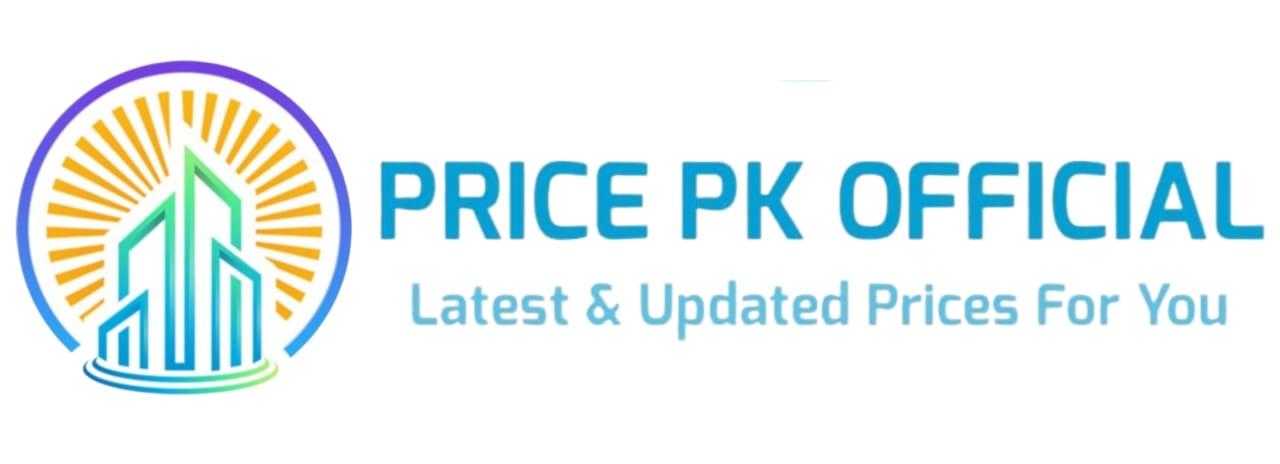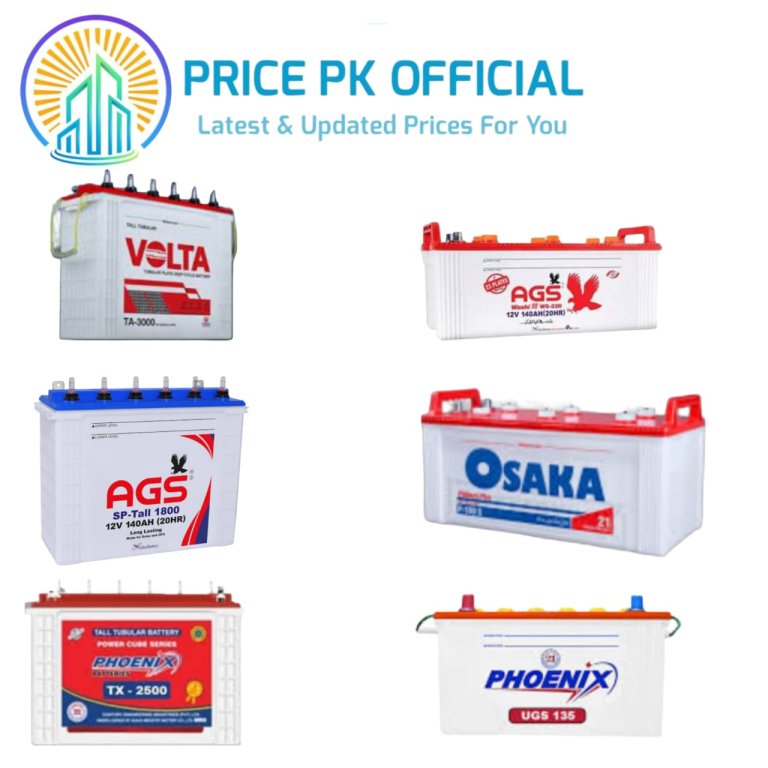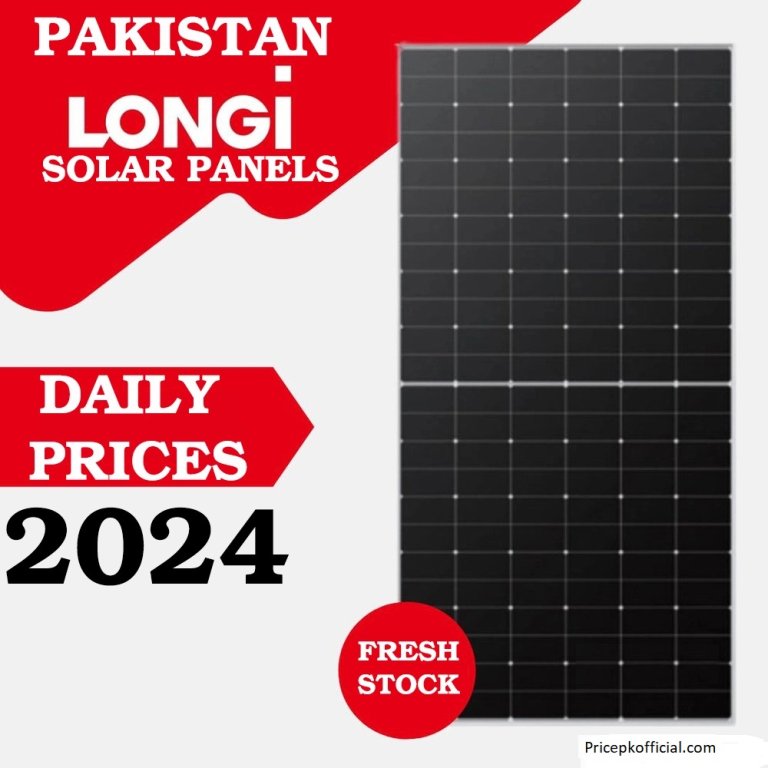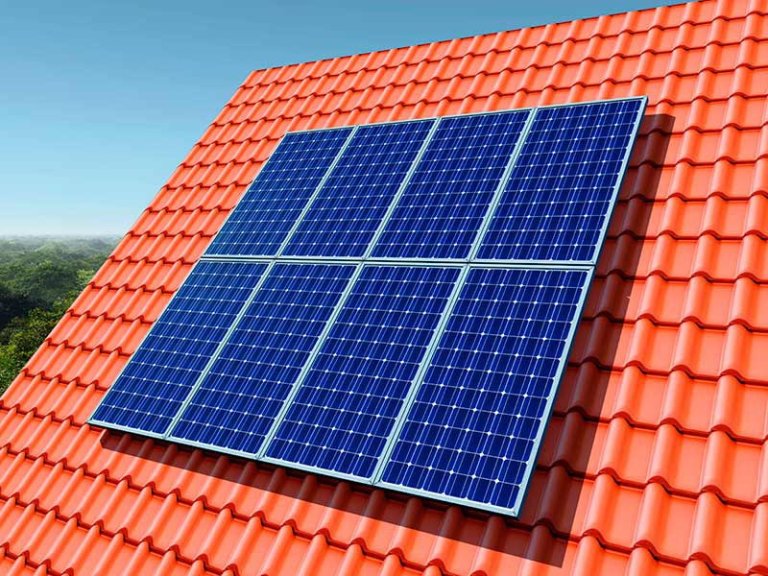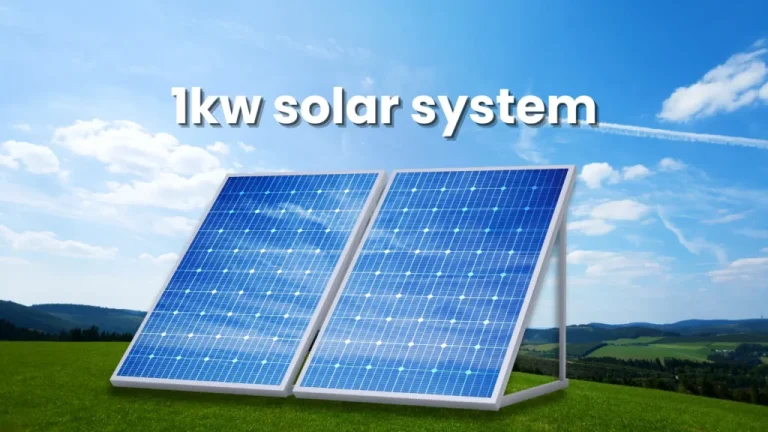Solar Inverter Price in Pakistan Today (November) 2024
The Solar Inverter Price in Pakistan is approximately Rs.50840/- for Inverex Veyron 1.2KW.
In Pakistan, the demand for solar power systems has risen significantly in recent years due to increasing electricity costs, frequent power outages, and growing awareness of the benefits of renewable energy. Among the critical components of a solar power system, the solar inverter plays a vital role in converting the direct current (DC) generated by solar panels into alternating current (AC), which can be used by household appliances.
If you’re looking to buy a solar inverter in Pakistan, understanding the various types, features, and prices is essential. In this guide, we’ll explore everything you need to know about solar inverters, their types, factors that affect pricing, and a detailed look at the price range in Pakistan. Explore More: Gold Price in Pakistan 2024
1. What is a Solar Inverter?
A solar inverter is an essential component of a solar power system that converts the DC electricity produced by solar panels into AC electricity, making it usable for homes and businesses. Without an inverter, the energy harnessed by solar panels would be incompatible with most of the devices we use daily.
There are several types of solar inverters, each designed for different applications and energy requirements. Choosing the right inverter can impact your solar system’s efficiency and overall performance.
2. Types of Solar Inverters
2.1. String Inverters
String inverters are the most common type of solar inverters used in residential and small commercial installations. In this type of system, solar panels are connected in series, forming a “string,” and the inverter converts the combined output from the panels into AC.
- Advantages:
- Simple and cost-effective
- Easy to install and maintain
- Suitable for homes and small businesses
- Disadvantages:
- If one panel underperforms (due to shading or dirt), the entire string’s efficiency decreases.
- Less flexibility in handling different roof angles or orientations.
2.2. Microinverters
Microinverters are smaller inverters installed on each solar panel rather than using one central inverter for the whole system. Each panel operates independently, allowing for more flexible designs and efficient energy conversion.
- Advantages:
- Each panel performs optimally, even if one panel is shaded or dirty.
- Increased efficiency and flexibility in system design.
- Disadvantages:
- Higher upfront cost compared to string inverters.
- More components to install and maintain.
2.3. Hybrid Inverters
Hybrid inverters, also known as multi-mode inverters, are designed to work with both solar panels and energy storage systems (such as batteries). These inverters can manage power flow between the grid, solar panels, and battery storage, offering greater flexibility and energy independence.
- Advantages:
- Can store excess energy in batteries for use during power outages or at night.
- Improved energy management and independence from the grid.
- Disadvantages:
- More expensive than standard string or microinverters.
- Requires an energy storage system, which increases overall cost.
2.4. Off-Grid Inverters
Off-grid inverters are used in systems that are not connected to the electrical grid. They work with solar panels and battery storage to provide power in remote areas or for homes that want complete energy independence.
- Advantages:
- Allows for complete independence from the grid.
- Suitable for remote or rural areas without access to the electrical grid.
- Disadvantages:
- Higher cost due to the need for large battery storage.
- Requires careful management of energy usage.
2.5. Central Inverters
Central inverters are larger versions of string inverters used in commercial and industrial solar power systems. They are capable of handling the power output of large solar arrays and are typically used for large-scale installations.
- Advantages:
- Suitable for large-scale solar power systems.
- Cost-effective for high-capacity installations.
- Disadvantages:
- Not suitable for residential use due to size and cost.
- Requires significant space and infrastructure.
3. Factors Affecting Solar Inverter Price in Pakistan
When considering the price of a solar inverter, several factors come into play that can influence the overall cost:
3.1. Inverter Type
As discussed earlier, different types of inverters come at different price points. Microinverters and hybrid inverters tend to be more expensive than string inverters due to their advanced features and higher efficiency.
3.2. Power Capacity
Solar inverters are rated based on their power capacity, measured in kilowatts (kW). The higher the power capacity, the more expensive the inverter. Residential systems typically require inverters ranging from 3 kW to 10 kW, while commercial systems may require inverters with capacities of 20 kW or higher.
3.3. Brand and Quality
Brand reputation and quality of the inverter significantly affect the price. High-quality inverters from reputable brands like SMA, Fronius, and Huawei are more expensive but offer better efficiency, reliability, and longer warranties.
3.4. Efficiency Rating
Inverter efficiency is measured by how well it converts DC power into usable AC power. Inverters with higher efficiency ratings are more expensive but provide better performance, meaning you can extract more energy from your solar panels.
3.5. Warranty and Support
Inverters typically come with warranties ranging from 5 to 10 years. Inverters with longer warranties tend to cost more, but they provide better long-term value and peace of mind.
4. Distinct Solar Inverter Price in Pakistan
The price of solar inverters in Pakistan can vary depending on the factors mentioned above. Here’s an estimated price range based on the different types of inverters and their power capacities:
4.1. String Inverter Prices
- 3 kW String Inverter: PKR 60,000 to PKR 100,000
- 5 kW String Inverter: PKR 100,000 to PKR 150,000
- 10 kW String Inverter: PKR 150,000 to PKR 300,000
4.2. Microinverter Prices
- Microinverter for Single Panel: PKR 20,000 to PKR 40,000 per panel
- Complete Microinverter System for 3 kW: PKR 150,000 to PKR 250,000
4.3. Hybrid Inverter Prices
- 3 kW Hybrid Inverter: PKR 120,000 to PKR 200,000
- 5 kW Hybrid Inverter: PKR 200,000 to PKR 350,000
- 10 kW Hybrid Inverter: PKR 350,000 to PKR 500,000
4.4. Off-Grid Inverter Prices
- 3 kW Off-Grid Inverter: PKR 80,000 to PKR 150,000
- 5 kW Off-Grid Inverter: PKR 150,000 to PKR 250,000
- 10 kW Off-Grid Inverter: PKR 250,000 to PKR 400,000
4.5. Central Inverter Prices (Commercial Use)
- 20 kW Central Inverter: PKR 600,000 to PKR 1,000,000
- 50 kW Central Inverter: PKR 1,000,000 to PKR 2,000,000
5. Popular Solar Inverter Brands in Pakistan
There are several popular brands available in the Pakistani market that offer reliable solar inverters. These brands vary in price, quality, and features:
5.1. SMA Solar Technology
- Known for high efficiency and reliability.
- Offers a wide range of string, hybrid, and central inverters.
- Price: PKR 150,000 to PKR 600,000 (depending on model and capacity).
5.2. Fronius
- High-quality inverters with excellent efficiency and performance.
- Primarily offers string and hybrid inverters.
- Price: PKR 200,000 to PKR 550,000.
5.3. Huawei
- A popular choice for both residential and commercial solar systems.
- Offers string and hybrid inverters with modern features.
- Price: PKR 100,000 to PKR 500,000.
5.4. Growatt
- Affordable and reliable solar inverters for residential use.
- Offers string, hybrid, and off-grid inverters.
- Price: PKR 70,000 to PKR 400,000.
5.5. Goodwe
- Known for durable and efficient inverters, particularly in residential and small commercial markets.
- Price: PKR 100,000 to PKR 350,000.
6. Where to Buy Solar Inverters in Pakistan
Solar inverters are available from various sources, including online stores, physical electronics shops, and specialized solar equipment suppliers. Some popular places to buy solar inverters in Pakistan include:
- Daraz.pk: A popular e-commerce platform that offers a range of solar inverters at different price points.
- Solar Shop: An online store specializing in solar products, including inverters and complete solar systems.
- Local Solar Dealers: Many local dealers and installers across major cities like Karachi, Lahore, and Islamabad offer both products and installation services.
Before purchasing, it’s essential to verify the authenticity of the product and ensure that it comes with a warranty and after-sales support. Additionally, comparing prices across multiple vendors can help you find the best deal for your needs.
7. How to Choose the Right Solar Inverter in Pakistan
Choosing the right solar inverter is critical to ensuring the efficiency and reliability of your solar power system. Here are some factors to consider when selecting a solar inverter in Pakistan:
7.1. System Size
- Residential Use: For a small to medium home solar system, a 3 kW to 5 kW string or hybrid inverter is usually sufficient. You may also consider microinverters if you want better panel-level performance.
- Commercial Use: Larger commercial systems may require inverters with higher capacities, such as 10 kW, 20 kW, or even central inverters.
7.2. Power Requirements
Before purchasing an inverter, calculate your daily power consumption to determine the inverter’s capacity. A rough estimate can be made by adding up the wattage of all appliances in your home or business and multiplying it by the number of hours you use them.
7.3. Solar Panel Compatibility
Ensure that the inverter you choose is compatible with your solar panel system. Check the voltage and current ratings of the inverter and make sure they match the specifications of your solar panels.
7.4. Efficiency Rating
Inverters with higher efficiency ratings convert more solar energy into usable electricity, which results in lower energy losses. While more efficient inverters may cost more upfront, they can save you money in the long run by generating more power.
7.5. Warranty and After-Sales Support
Solar inverters typically come with a warranty period of 5 to 10 years. Choose an inverter from a brand that offers good after-sales support and warranty coverage to ensure you are covered in case of any issues.
7.6. Budget
Your budget will also play a role in determining the type and capacity of the inverter you choose. While hybrid and microinverters offer more features and efficiency, they are more expensive than standard string inverters. Consider your budget and long-term energy savings when making your decision.
8. Installation and Maintenance of Solar Inverters
Once you’ve selected the right solar inverter, proper installation and maintenance are crucial to ensuring its optimal performance. Here are a few things to keep in mind:
8.1. Professional Installation
- It’s always recommended to have your solar inverter installed by a certified technician. This ensures that the inverter is set up correctly and safely.
- Ensure that the installation complies with local regulations and safety standards.
8.2. Regular Maintenance
- Cleaning: Solar inverters should be cleaned periodically to remove dust, dirt, and debris that may accumulate over time, especially in outdoor installations.
- Monitoring: Some inverters come with monitoring software or apps that allow you to track the system’s performance in real time. Keep an eye on any sudden drops in efficiency.
- Servicing: Inverters may require servicing every few years to ensure they continue to function optimally. This can include checking for loose connections, inspecting wiring, and replacing any worn-out parts.
8.3. Common Issues and Troubleshooting
- Overheating: If an inverter overheats, it can reduce its efficiency or even cause it to shut down temporarily. Ensure proper ventilation around the inverter to prevent this issue.
- Inverter Shutdowns: If the inverter shuts down frequently, it may be due to a mismatch in system size or faulty wiring. In this case, consult with your installer for troubleshooting.
9. Advantages of Solar Inverters in Pakistan
Switching to solar energy in Pakistan offers numerous advantages, both economically and environmentally. Solar inverters play a key role in making solar power systems viable. Here are some benefits of using solar inverters:
9.1. Reduced Electricity Bills
By converting solar energy into usable electricity, solar inverters allow households and businesses to reduce their dependence on the national grid, resulting in lower electricity bills.
9.2. Energy Independence
Solar inverters, especially hybrid and off-grid inverters, provide energy independence by allowing users to generate their electricity and store excess power in batteries. This is particularly useful in areas with frequent power outages.
9.3. Environmental Benefits
Solar energy is a clean and renewable energy source. By using solar inverters to harness this energy, you reduce your carbon footprint and help contribute to a more sustainable future.
9.4. Return on Investment (ROI)
Although the initial cost of installing a solar system may seem high, the long-term savings on electricity bills and potential government incentives make it a worthwhile investment.
10. Government Incentives for Solar Energy in Pakistan
The Pakistani government has introduced various incentives and programs to promote solar energy adoption across the country. These incentives aim to make solar power systems, including inverters, more accessible and affordable for households and businesses.
10.1. Net Metering
The Net Metering policy allows solar system owners to sell excess electricity generated by their solar panels back to the national grid. This not only helps reduce electricity bills but also provides an additional source of income for solar system owners.
10.2. Tax Exemptions
The government has implemented tax exemptions on solar energy equipment, including solar inverters, to encourage more people to invest in solar power. This can help reduce the overall cost of installing a solar power system.
10.3. Subsidies and Financing Options
Several banks in Pakistan offer green financing programs that provide low-interest loans for purchasing and installing solar energy systems. These programs make it easier for individuals and businesses to switch to solar energy.
11. Future Trends in Solar Inverter Technology
The solar energy industry is continually evolving, and advancements in solar inverter technology are no exception. Here are some future trends to watch out for:
11.1. Smarter Inverters
Future inverters are likely to become smarter, with built-in artificial intelligence (AI) and machine learning algorithms that can optimize energy production and distribution in real time.
11.2. Energy Storage Integration
As battery technology improves, hybrid inverters with integrated energy storage capabilities will become more prevalent, allowing users to store excess energy more efficiently and use it when needed.
11.3. Increased Efficiency
Ongoing research and development in solar inverter technology aim to improve efficiency even further, reducing energy losses and maximizing the power output from solar panels.
11.4. Grid Interactivity
Newer solar inverters may offer more seamless integration with the national grid, making it easier for homeowners and businesses to participate in net metering and other grid-related programs.
12. Conclusion
Solar inverters are a crucial part of any solar energy system, converting the power generated by solar panels into usable electricity. In Pakistan, where power outages and high electricity costs are common, investing in a solar inverter is a practical and eco-friendly solution. Understanding the types of solar inverters, their prices, and the factors affecting their cost will help you make an informed decision.
While prices for solar inverters in Pakistan vary based on capacity, type, and brand, there are options available for different budgets and energy needs. Whether you’re a homeowner looking to cut down on energy bills or a business aiming for energy independence, the right solar inverter can help you harness the power of the sun.
As the solar industry continues to grow and evolve, advancements in technology and government incentives will make solar energy an even more accessible and cost-effective option in the years to come. With proper research, planning, and installation, switching to solar energy can offer long-term savings and a positive environmental impact.
